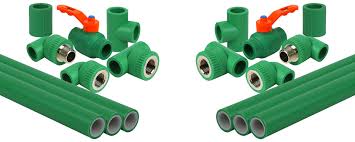Dec . 01, 2024 01:03 Back to list
HDPE Pipe Applications in Manufacturing Processes and Industry Solutions
The Use of HDPE Pipe in Manufacturing An Overview
High-Density Polyethylene (HDPE) pipe has gained significant popularity across various industries, primarily due to its robustness, flexibility, and resistance to corrosion. As a material that offers long-term solutions for challenging environments, HDPE has become a preferred choice for manufacturers looking for dependable piping solutions. In this article, we will explore the applications, benefits, and considerations of using HDPE pipes in manufacturing.
Applications of HDPE Pipe
HDPE pipes are versatile and can be used in numerous applications. They are primarily employed in industries such as water supply, sewage systems, gas distribution, industrial applications, and agricultural irrigation. The versatility of HDPE pipes allows them to be used effectively in both underground and above-ground installations.
1. Water Supply Systems One of the most common applications of HDPE pipes is in municipal water supply systems. These pipes provide a reliable source for transporting potable water without risk of contamination, which can occur with other materials such as metal pipes that may corrode over time.
2. Sewage and Waste Management HDPE’s resistance to chemicals makes it an ideal material for sewage and wastewater disposal systems. The pipes can withstand the aggressive nature of sewage without breaking down, ensuring a longer service life with minimal maintenance.
3. Gas Distribution In gas distribution networks, HDPE pipes offer a lightweight alternative to traditional metal pipes. Their fused joints eliminate potential failure points, ensuring safe and secure gas transportation.
4. Industrial Applications HDPE pipes are extensively used in manufacturing plants for transporting liquids, chemicals, and slurries. Their ability to handle high flow rates and pressures makes them suitable for a variety of industrial processes.
5. Agricultural Irrigation The agricultural sector benefits from HDPE pipes in irrigation systems, where they are used for drip and sprinkler irrigation. Their flexibility and resistance to UV and environmental stressors ensure efficient water delivery to crops.
Benefits of HDPE Pipe
1. Durability One of the most significant advantages of HDPE pipes is their durability. Made from a non-toxic and inert material, HDPE does not rust, corrode, or deteriorate. This longevity results in lower replacement and maintenance costs.
hdpe pipe used for manufacturer

2. Flexibility and Ease of Installation HDPE pipes have a degree of flexibility that allows them to be used in various applications without requiring numerous fittings. They can be easily installed in challenging areas, enhancing efficiency during installation.
3. Corrosion and Chemical Resistance HDPE pipes are resistant to a wide range of chemicals, making them an ideal option for industrial and chemical handling applications. Their ability to withstand harsh environmental conditions means they can perform well in aggressive environments.
4. Lightweight Compared to traditional materials such as steel or concrete, HDPE pipes are significantly lighter. This quality facilitates easier transportation and handling, leading to reduced labor costs during installation.
5. Cost-Effectiveness While the initial cost of HDPE pipes may be higher than that of PVC, their longevity and reduced maintenance needs lower the overall life-cycle costs significantly.
Considerations When Using HDPE Pipe
Despite its many advantages, there are some considerations manufacturers should keep in mind when using HDPE pipes
1. Temperature Limitations HDPE pipes have certain temperature limits. Using them in extremely high or low temperatures can affect their performance, so it is crucial to consult engineering guidelines before installation.
2. Installation Quality The installation of HDPE pipes requires skilled personnel to ensure proper fusion techniques are applied. Poor installation can lead to failures in the piping system.
3. Environmental Factors While HDPE is generally resistant to UV radiation, prolonged exposure to sunlight can lead to degradation. Therefore, proper protective measures should be taken, especially for above-ground installations.
Conclusion
HDPE pipes are an integral part of modern manufacturing processes, offering numerous advantages that contribute to efficiency, durability, and cost savings. As industries continue to evolve, the demand for reliable and resilient piping solutions such as HDPE will undoubtedly increase. By understanding both the benefits and considerations associated with HDPE pipes, manufacturers can make informed decisions that enhance their operational capabilities for years to come.
-
High-Quality PVC Borehole Pipes Durable & Versatile Pipe Solutions
NewsJul.08,2025
-
High-Quality PVC Perforated Pipes for Efficient Drainage Leading Manufacturers & Factories
NewsJul.08,2025
-
High-Quality PVC Borehole Pipes Durable Pipe Solutions by Leading Manufacturer
NewsJul.08,2025
-
High-Quality PVC Borehole Pipes Reliable PVC Pipe Manufacturer Solutions
NewsJul.07,2025
-
High-Quality UPVC Drain Pipes Durable HDPE & Drain Pipe Solutions
NewsJul.07,2025
-
High-Quality Conduit Pipes & HDPE Conduit Fittings Manufacturer Reliable Factory Supply
NewsJul.06,2025

